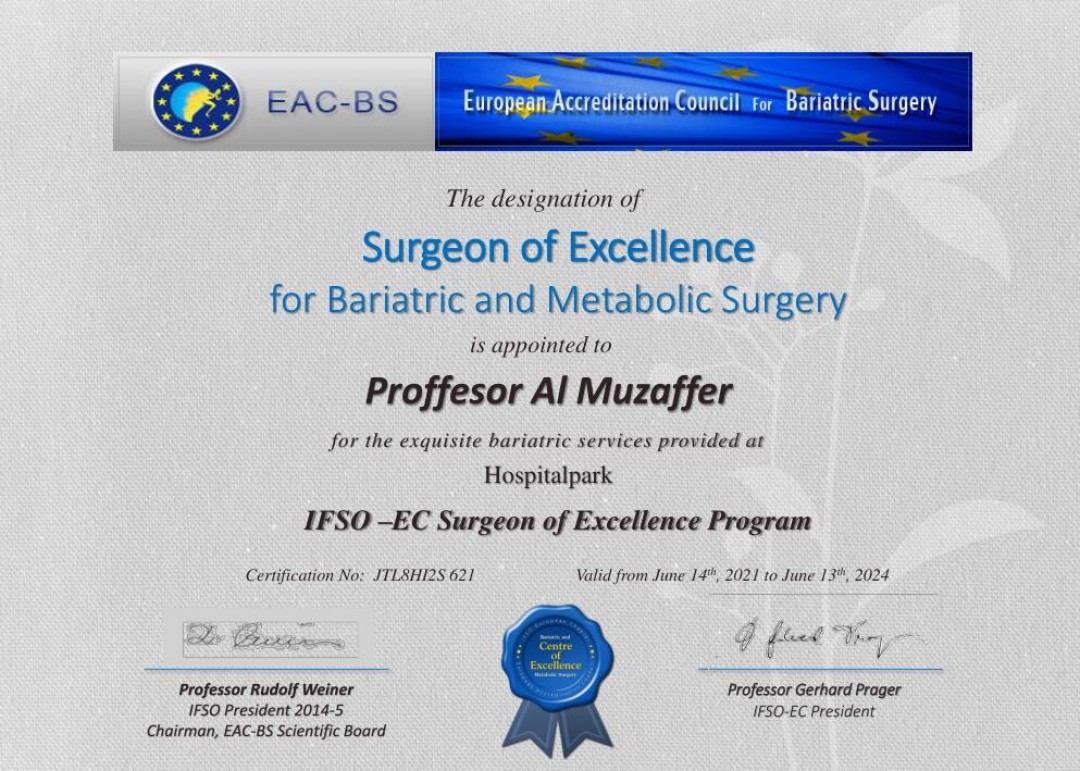Diabetes Surgery / Metabolic Surgery
Type 2 Diabetes Surgery? Treatment of Type 2 Diabetes? Lifestyle Change?
Diabetes surgery
Transforming Lives through Metabolic Surgery
Did you know that type 2 diabetes can be effectively treated through surgical intervention?
The global rise in diabetes cases prompts us to utilize innovative surgical methods for type 2 diabetes patients, a groundbreaking approach termed Metabolic Surgery. While the conventional treatment algorithm for type 2 diabetes involves training, diet, exercise, and medication, these methods may not always provide the desired results. In cases of progressive disease or ineffective insulin use, uncontrolled blood sugar levels can lead to severe organ damage, sometimes proving fatal. Metabolic Surgery emerges as a compelling alternative in such challenging scenarios.
Understanding Metabolic Surgery
Metabolic surgery operates by improving insulin resistance and release, independent of weight loss, through gastrointestinal hormonal changes. This innovative approach enhances the overall situation of diabetes patients, often allowing them to discontinue insulin or oral antidiabetic drugs while effectively regulating sugar levels.
Success Rate of Metabolic Surgery
With a success rate ranging from 75-98%, Metabolic Surgery delivers an average treatment success rate of 86%, showcasing its effectiveness in managing type 2 diabetes.
Additional Benefits of Metabolic Surgery
Metabolic Surgery exhibits noteworthy benefits, including an 80% improvement in hypertension, a 90% improvement in patients with elevated cholesterol and triglyceride levels, and weight control through hormonal effects in individuals with excess weight. Furthermore, it contributes to improvements in diabetes-related complications such as eye bleedings, kidney failure, foot wounds, nerve damage, and damage to various organs. Sexual problems associated with diabetes can also see improvement.
Method of Application
Utilizing the laparoscopic method, the surgery is performed through small millimetric holes. This approach minimizes postoperative pain, facilitates earlier resumption of normal activities, and enhances overall healing.
Duration of Surgery
On average, Metabolic Surgery takes approximately 2 hours.
Hospital Stay
Patients typically stay in the hospital for an average of 4-5 days.
Return to Normal Life
Patients can resume their normal lives within 7-10 days post-surgery.
Post-Surgery Diet
While continuous dieting is not required, the initial 10 days involve consuming fluids, followed by semi-solid foods between the 10th and 14th days. Solid foods can be reintroduced after 14 days, with an emphasis on avoiding high glycemic index foods. Nutritionists provide a customized nutritional plan, and follow-up is conducted by our expert team.
Post-Surgery Check-ups
Regular tests are recommended at 1, 3, 6, 9, and 12 months after the surgery, followed by biannual checks thereafter. These tests can be conducted locally, with results conveniently shared through WhatsApp or email.
The global rise in diabetes cases prompts us to utilize innovative surgical methods for type 2 diabetes patients, a groundbreaking approach termed Metabolic Surgery. While the conventional treatment algorithm for type 2 diabetes involves training, diet, exercise, and medication, these methods may not always provide the desired results. In cases of progressive disease or ineffective insulin use, uncontrolled blood sugar levels can lead to severe organ damage, sometimes proving fatal. Metabolic Surgery emerges as a compelling alternative in such challenging scenarios.
Understanding Metabolic Surgery
Metabolic surgery operates by improving insulin resistance and release, independent of weight loss, through gastrointestinal hormonal changes. This innovative approach enhances the overall situation of diabetes patients, often allowing them to discontinue insulin or oral antidiabetic drugs while effectively regulating sugar levels.
Success Rate of Metabolic Surgery
With a success rate ranging from 75-98%, Metabolic Surgery delivers an average treatment success rate of 86%, showcasing its effectiveness in managing type 2 diabetes.
Additional Benefits of Metabolic Surgery
Metabolic Surgery exhibits noteworthy benefits, including an 80% improvement in hypertension, a 90% improvement in patients with elevated cholesterol and triglyceride levels, and weight control through hormonal effects in individuals with excess weight. Furthermore, it contributes to improvements in diabetes-related complications such as eye bleedings, kidney failure, foot wounds, nerve damage, and damage to various organs. Sexual problems associated with diabetes can also see improvement.
Method of Application
Utilizing the laparoscopic method, the surgery is performed through small millimetric holes. This approach minimizes postoperative pain, facilitates earlier resumption of normal activities, and enhances overall healing.
Duration of Surgery
On average, Metabolic Surgery takes approximately 2 hours.
Hospital Stay
Patients typically stay in the hospital for an average of 4-5 days.
Return to Normal Life
Patients can resume their normal lives within 7-10 days post-surgery.
Post-Surgery Diet
While continuous dieting is not required, the initial 10 days involve consuming fluids, followed by semi-solid foods between the 10th and 14th days. Solid foods can be reintroduced after 14 days, with an emphasis on avoiding high glycemic index foods. Nutritionists provide a customized nutritional plan, and follow-up is conducted by our expert team.
Post-Surgery Check-ups
Regular tests are recommended at 1, 3, 6, 9, and 12 months after the surgery, followed by biannual checks thereafter. These tests can be conducted locally, with results conveniently shared through WhatsApp or email.

 Obesity
Obesity Diabetes
Diabetes Non-Surgical Aesthetics
Non-Surgical Aesthetics Surgical Aesthetics
Surgical Aesthetics Dental Treatment
Dental Treatment Oncology
Oncology Hair Transplantation
Hair Transplantation










